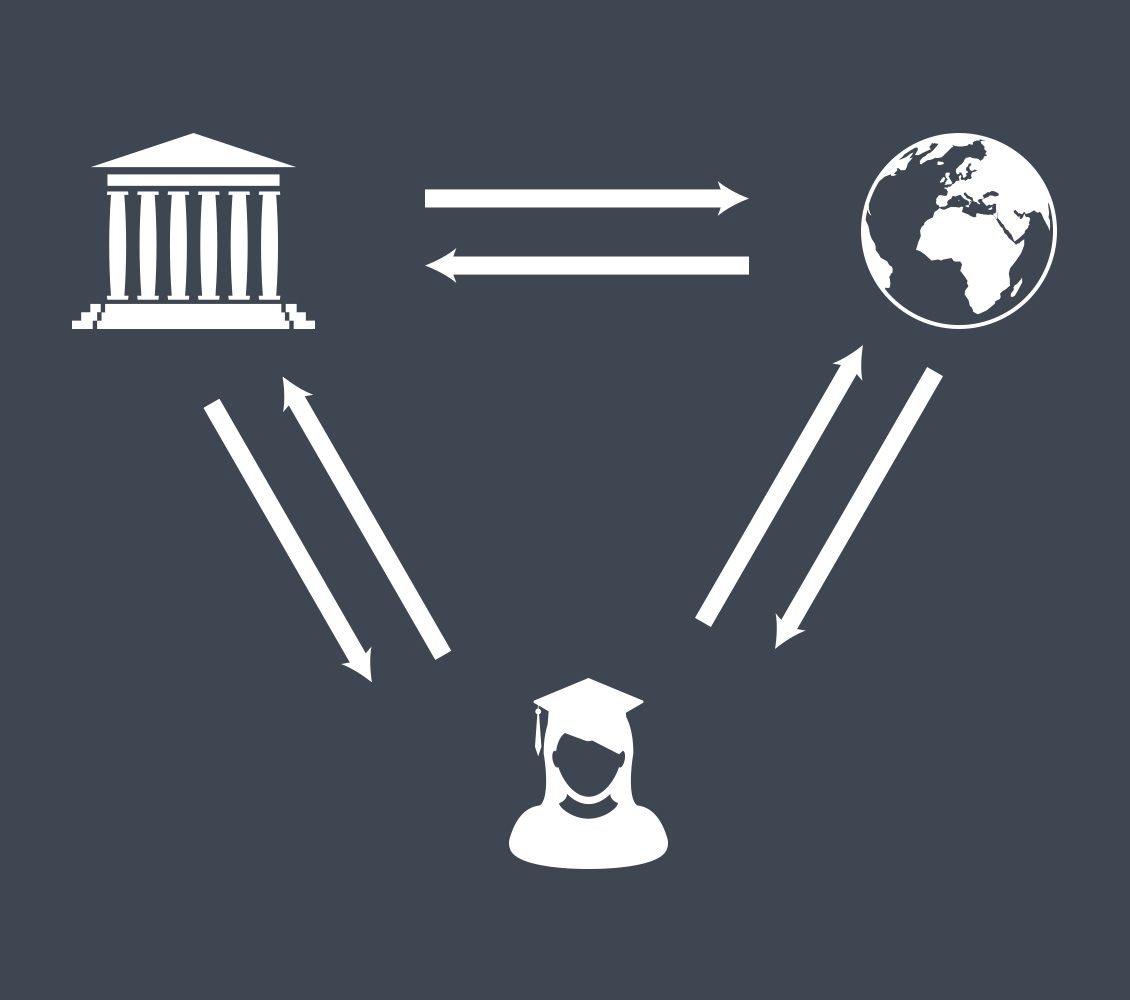Without diminishing the centrality of the PhD research endeavor, how can we cultivate more engaged graduate students?
This presentation situates the graduate research endeavor in its wider institutional and public context and suggests two concrete ways to give PhDs enhanced skills that will enable them to enrich their institutions and the wider world they inhabit.
The value of the PhD is rooted in the research endeavor.
A PhD requires a deep dive into a specific area of study that pushes the limits of what is known and extends our understanding of and relationship to the world.
Such substantive, extended research projects require specific habits of scholarship — close reading, creative questioning, resourceful imagination, sophisticated writing — that enrich the life of the academy.
The PhD research endeavor enriches the academic institution by infusing it with new, potentially transformative, ideas to consider and communicate.
These ideas have the capacity to offer new solutions to existing problems or to open new possibilities for intractable, dysfunctional relationships.
In the same way the scholar enriches the life of the institution, the institution enriches the wider world in which it is situated.
[slideshare id=39082854&doc=altacatcalsslideshare-140915002046-phpapp02]
By conducting research and educating undergraduates, colleges and universities train creative workforces, solve pressing societal problems, and cultivate in citizens a more meaningful understanding of the world and their place in it.
These relationships—between scholar and institution, institution and world—are at the root of traditional PhD education.
But, of course, these relationships are reciprocal – or they ought to be. The wider world contributes back to the university young people to be educated and funding for research and discovery. And the academy creates supportive environments that promote scholarly activities.
Now, the more cynical among us might consider these relationships more coercive and manipulative than supportive and enriching; and that’s fine. I don’t want to idealize the complexities that condition academic life. But I do want to find opportunities to enhance graduate education by empowering graduate students to understand these interrelationships so that they can enrich them and be enriched by them.
The graduate internship program (GRIP) is one such opportunity. GRIP is designed to expose graduate students to the broader life of the institutions that make their scholarship possible.
PhD students gain expanded work experience and develop marketable skills without being diverted from their primary research agenda or slowed in their degree progress.
A PhD internship in the Career Enrichment Network or University Fellowship Office offers insight into the institutional structures that support undergraduate and graduate education.
To gain a deeper understanding of the relationship between the academy and the wider world, PhD candidates might work in Alumni Relations and Development or in Undergraduate Admissions.
The idea behind GRIP is both to cultivate in graduate students an understanding of the complex institutions that sustain their scholarship and also to empower them to participate in the life of the institution and the wider world of which it is a part.
The third side of this triangle points to the direct relationship between the student and the world.
Whatever else digital modes of communication entail, they afford scholars opportunities to engage a wide public in ways that can be enriching for both. Cultivating the habits of excellent public scholarly communication takes intentional, reflective practice.
Last fall, following the lead of Jim Groom at the University of Mary Washington, we launched “A Domain of One’s Own” to give graduate students personal, non-institutional domains and hosting space that they can carry with them after graduation.
The Domain of One’s Own initiative opens a space for young scholars to cultivate public communities of shared interest. Under their own moniker, students can share their research findings and methods with a public that will benefit from their work. Here too, however, students can learn the important habits of listening and responding to the public in ways that allow a dialogue to emerge that can have transformative effects on scholars and publics both.
These are the reciprocal relationships that enrich us as scholars and afford us opportunities to contribute to the well-being of the institutions that sustain us and the wider world about which we care so deeply.
By taking these connections seriously and integrating a concern for them into the graduate student experience, we will be able to cultivate more engaged and engaging scholars without diminishing their ability to pursue and complete extended PhD research.
The value here from an #AltAc perspective should be clear.
By educating PhDs with a deeper appreciation for the dynamics of these interconnected relationships and the skills needed to navigate them effectively, we open new opportunities for graduates and enrich our institutions, whether they be universities, businesses, government organizations, healthcare providers, NGOs, or whatever institution might be benefited by scholars with excellent research skills capable of effectively engaging the wider world they inhabit.
The PhD has always and will remain rooted in the research endeavor but that research is supported and enriched by the academy so that it might in turn transform our understanding of the world we share and deepen our relationships with one another.


2 Comments